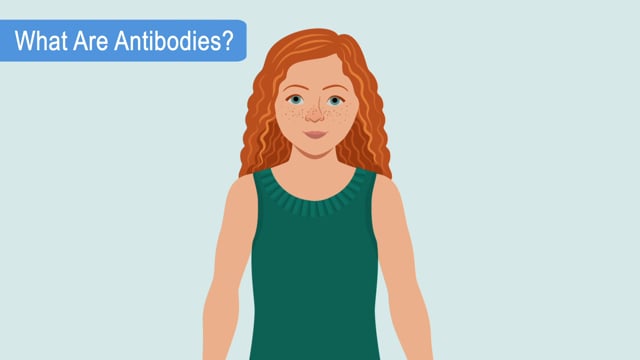COVID-19: Antibody Testing
What Is Antibody Testing?
Antibodies (also called immunoglobulins) are proteins made by the immune system. Their job is to recognize and get rid of germs. They're made after a person has been infected by a germ, or has been vaccinated against that germ. Usually, antibodies stay in our bodies in case we have to fight the same germ again.
Antibody testing lets doctors look for antibodies in blood.

What are Antibodies?
What's an antibody? What's an antigen? Find out here.
How Is Antibody Testing for COVID-19 Done?
An antibody blood test for COVID-19 uses a small blood sample. Sometimes the test can be done with a "fingerstick," using a tiny needle (or lancet) to collect the blood from a fingertip.
Who Should Get an Antibody Test for COVID-19?
For now, it seems that only people participating in research studies should get these tests. Sometimes doctors will check for antibodies in a specific situation (such as when a child is in the hospital with MIS-C).
Antibody testing isn't recommended for most people because:
- The tests can't tell if a person is infected on the day they are tested.
- It isn't clear how to interpret the results of an antibody test:
- A “positive” result means the person has antibodies to the virus. But this doesn’t protect someone from being infected again. People can get COVID-19 more than once. So even someone whose test is positive should still do things to prevent infection like getting vaccinated, wearing a mask when recommended, and washing hands often.
- A “negative” result means the test did not find antibodies in the person’s blood. But they still might be immune to the virus because other parts of the immune system also can offer protection from the virus.
So antibody test results aren’t a useful way to see if a person is immune to the virus, or to see if the vaccine is still working. When a test result is not helpful, there's usually no reason to do it.
Talk to your doctor to see if antibody testing for COVID-19 is right for you or your children.
Reviewed by: Elana Pearl Ben-Joseph, MD
Date Reviewed: Oct 1, 2023
















